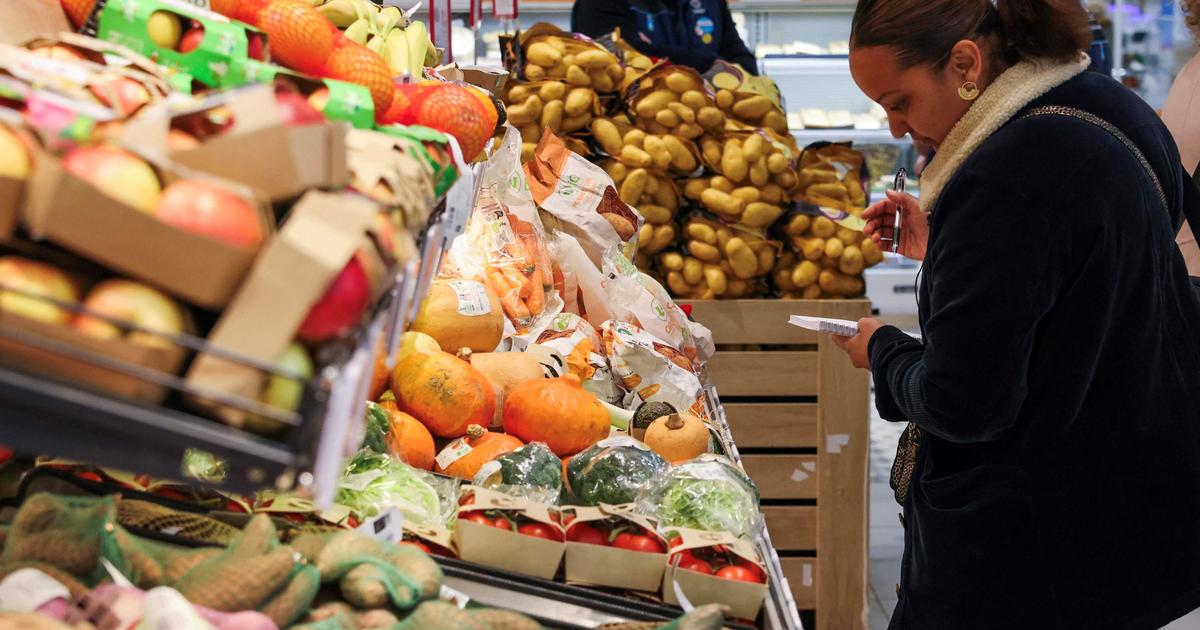The harm of ultra-processed foods in children 0:55
(CNN) -
Children who eat more ultra-processed foods are more likely to be overweight or obese as adults, a new 17-year study of more than 9,000 British children born in the 1990s suggests. They also found that ultra-processed foods, including frozen pizzas, soft drinks, sliced bread and some prepared foods, accounted for a very high proportion of children's diets, more than 60% of calories on average.
"One of the key things we discovered here is a dose-response relationship," said Dr Eszter Vamos, senior clinical professor of public health medicine at Imperial College London and an author of the study that was published in the journal JAMA. Pediatrics on Monday, in a press release.
"This means that not only are the children who eat the most ultra-processed foods (who) have the worst weight gain, but the more they eat, the worse it gets," said Vamos.
The industrial processing of foods modifies them to change their consistency, flavor, color and shelf life, using a mechanical or chemical alternation to make them more palatable, cheap, attractive and convenient - processes that do not occur in homemade meals, the study noted.
Ultra-processed foods tend to be more energy dense and nutritionally poor.
They are typically high in sugar, salt, and saturated fat, but low in protein, dietary fiber, and micronutrients, and are aggressively marketed by the food industry, according to the study.
How Processed Foods Promote Diet-Related Illness
Gunter Kuhnle, a professor of nutrition and food science at the University of Reading in the UK who was not part of the research, said the relationship between children's health and ultra-processed foods was complex, with socioeconomic factors likely playing a role. An important paper.
“The results of this study are not surprising: children who eat a lot of 'ultra-processed' foods are more likely to be less healthy and more obese than their peers who eat less.
However, interpreting these results is much more difficult, 'he told the Science Media Center in London.
advertising
“The result of the study is largely conditioned by socioeconomic factors: children who live in more disadvantaged areas and those who come from families with a lower educational level and socioeconomic status are those who consume the most ultra-processed foods.
Unfortunately, these children are also at the highest risk of obesity and poor health, as considerable health inequalities continue to exist in the UK and socio-economic status is a major determinant of health. '
Tortilla, a key food product in Mexico, registers a record increase in price
The researchers followed a group of 9,000 children, who were participating in a larger study, from ages 7 to 24.
Food diaries were completed at 7, 10 and 13 years of age, recording the food and beverages that the children consumed for three days.
Measurements of body mass index (BMI), weight, waist circumference, and body fat were also taken during the study period.
The children were divided into five groups based on the amount of ultra-processed foods they ate.
In the lowest group, ultra-processed foods accounted for a fifth of their total diet, while in the highest group they accounted for more than two-thirds.
The researchers found that, on average, children in the groups that ate the most ultra-processed foods experienced faster increases in their BMI, weight, waist circumference and body fat as they grew older.
At age 24, those in the taller group had, on average, a higher BMI level of 1.2 kg / m2, more body fat by 1.5%, weight by 3.7 kg, and increased circumference of the waist by 3.1 cm.
Although the study shows a relationship between the intake of ultra-processed foods and increased BMI and body fat, it does not definitively demonstrate cause and effect.
11 tips to detoxify from overly processed foods
"The problem is that the children who ate different amounts of ultra-processed foods at age 7, and their families, would have differed in other ways, not just in the amount of ultra-processed foods they ate," Kevin McConway, professor emeritus at SMR, told SMR. applied statistics at The Open University who did not participate in the study.
"The associations between body fat measurements and ultra-processed food consumption could be caused by these other differences, and not by ultra-processed food consumption at all."
The researchers used statistical adjustments to account for other factors that could explain the relationship, such as gender, ethnicity, birth weight and physical activity, McConway said.
That "increased confidence in what causes the differences between the groups," he said.
Over-processed foods add 500 calories to your diet every day
Previous studies on the same topic had yielded inconsistent results, but involved fewer children and short follow-up periods, the researchers said.
According to the researchers, more radical and effective measures are needed to reduce the exposure and consumption of ultra-processed foods in minors.
Childhood obesity






/cloudfront-eu-central-1.images.arcpublishing.com/prisa/RDU33EMH6NBSHNKREMLJH4TGFQ.jpg)


